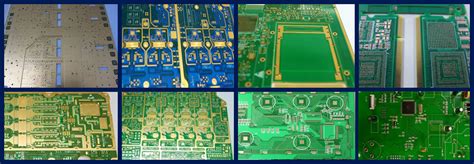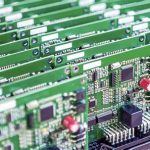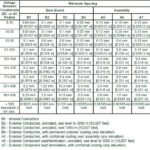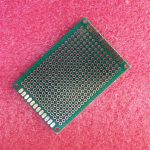Introduction to PCB Manufacturing
Printed Circuit Boards (PCBs) are the backbone of modern electronics. They are used in almost every electronic device, from smartphones and computers to medical equipment and aerospace systems. PCB manufacturing is a complex process that involves multiple steps, including design, fabrication, assembly, and testing. In this article, we will focus on Taconic PCB Manufacturers and fabricators, exploring their capabilities, services, and advantages.
What is Taconic?
Taconic is a leading manufacturer of advanced PCB materials and laminates. Founded in 1961, the company has a long history of innovation and expertise in the PCB industry. Taconic’s products are used by PCB manufacturers and fabricators worldwide to create high-quality, reliable PCBs for various applications.
Taconic’s PCB Materials
Taconic offers a wide range of PCB materials, including:
- FR-4: The most common PCB material, suitable for general-purpose applications
- High-Frequency Materials: Designed for high-speed digital and RF/microwave applications
- Low-Loss Materials: Ideal for applications requiring minimal signal loss and high-speed data transmission
- Flexible Materials: Used for flexible and rigid-flex PCBs
- Thermal Management Materials: Help dissipate heat in high-power applications
These materials are engineered to meet the specific requirements of different industries and applications, ensuring optimal performance and reliability.
PCB Manufacturers and Fabricators Using Taconic Materials
Many PCB manufacturers and fabricators rely on Taconic materials to produce high-quality PCBs. Some notable companies include:
1. Advanced Circuits
Advanced Circuits is a leading PCB manufacturer based in the United States. They offer a wide range of PCB services, including prototype and production fabrication, assembly, and design. Advanced Circuits uses Taconic materials for their high-frequency and low-loss PCBs, ensuring excellent signal integrity and reliability.
2. PCBWay
PCBWay is a global PCB manufacturer and fabricator with facilities in China and the United States. They provide a full range of PCB services, from prototyping to mass production. PCBWay uses Taconic materials for their advanced PCB solutions, such as high-speed digital and RF/microwave applications.
3. Sunstone Circuits
Sunstone Circuits is a US-based PCB manufacturer specializing in prototype and low-volume production. They offer a variety of PCB services, including design, fabrication, and assembly. Sunstone Circuits uses Taconic materials for their high-performance PCBs, ensuring optimal signal integrity and reliability.
4. Epec Engineered Technologies
Epec Engineered Technologies is a global PCB manufacturer and fabricator with facilities in the United States, Europe, and Asia. They offer a comprehensive range of PCB services, from design to production. Epec uses Taconic materials for their advanced PCB solutions, such as high-frequency and thermal management applications.

Advantages of Using Taconic Materials in PCB Manufacturing
Using Taconic materials in PCB manufacturing offers several advantages, including:
-
Superior Electrical Performance: Taconic’s high-frequency and low-loss materials provide excellent signal integrity, ensuring minimal signal distortion and loss.
-
Reliability: Taconic materials are engineered to withstand harsh environments and extreme conditions, making them ideal for demanding applications in industries such as aerospace, defense, and medical.
-
Consistency: Taconic maintains strict quality control standards, ensuring consistent material properties and performance across different batches and production runs.
-
Technical Support: Taconic offers extensive technical support to its customers, helping PCB manufacturers and fabricators optimize their designs and processes for the best possible results.
The PCB Manufacturing Process
The PCB manufacturing process consists of several steps, each critical to ensuring the quality and reliability of the final product.
1. PCB Design
The first step in PCB manufacturing is designing the circuit board. This involves creating a schematic diagram and a layout file using specialized PCB design software. The design must adhere to the specific requirements of the intended application, such as signal integrity, power distribution, and thermal management.
2. PCB Fabrication
Once the design is finalized, the PCB fabrication process begins. This involves several sub-steps, including:
- Printing the circuit pattern onto the copper-clad laminate
- Etching away the unwanted copper to create the desired circuit traces
- Drilling holes for through-hole components and vias
- Applying solder mask and silkscreen for protection and labeling
3. PCB Assembly
After fabrication, the PCB is ready for assembly. This involves placing and soldering electronic components onto the board, either manually or using automated equipment. The assembled PCB is then inspected and tested to ensure proper functionality.
4. PCB Testing and Quality Control
Throughout the manufacturing process, PCBs undergo various tests and quality control measures to ensure they meet the required specifications. Some common tests include:
- Electrical continuity and resistance testing
- Insulation resistance testing
- Solderability testing
- Visual inspection for defects and workmanship
These tests help identify and correct any issues before the PCBs are shipped to the customer.
Choosing the Right Taconic PCB Manufacturer or Fabricator
When selecting a Taconic PCB manufacturer or fabricator, consider the following factors:
-
Experience and Expertise: Look for a company with a proven track record in manufacturing PCBs using Taconic materials for your specific application.
-
Capabilities: Ensure the manufacturer or fabricator has the necessary equipment and processes to handle your PCB design complexity and volume requirements.
-
Quality Standards: Choose a company that adheres to strict quality control standards and has relevant certifications, such as ISO 9001 and IATF 16949.
-
Customer Support: Select a manufacturer or fabricator that provides responsive and knowledgeable customer support, helping you navigate the PCB manufacturing process and address any issues that may arise.
Future Trends in PCB Manufacturing
As technology advances, PCB manufacturing continues to evolve to meet the demands of new applications and industries. Some future trends in PCB manufacturing include:
-
Miniaturization: The trend towards smaller, more compact electronic devices is driving the need for smaller, denser PCBs with finer pitch components.
-
High-Speed Applications: The increasing demand for high-speed data transmission and processing is pushing the development of advanced PCB materials and manufacturing techniques to ensure optimal signal integrity.
-
Flexible and Wearable Electronics: The growing popularity of flexible and wearable electronic devices is driving the adoption of flexible and stretchable PCB materials and manufacturing processes.
-
Sustainable Manufacturing: As environmental concerns grow, PCB manufacturers are increasingly focusing on sustainable practices, such as using eco-friendly materials and implementing waste reduction initiatives.
Frequently Asked Questions (FAQ)
-
Q: What is the difference between a PCB manufacturer and a PCB fabricator?
A: A PCB manufacturer is responsible for the entire PCB production process, from design to fabrication and assembly. A PCB fabricator, on the other hand, focuses primarily on the fabrication process, which involves creating the bare PCB from the design files. -
Q: How do I choose the right Taconic material for my PCB application?
A: The choice of Taconic material depends on your specific application requirements, such as signal frequency, dielectric constant, loss tangent, and thermal management needs. Consult with your PCB manufacturer or fabricator, or refer to Taconic’s product datasheets for guidance. -
Q: What are the advantages of using Taconic materials for high-frequency PCBs?
A: Taconic’s high-frequency materials offer excellent signal integrity, low dielectric loss, and stable performance over a wide temperature range. These properties make them ideal for applications such as 5G networks, radar systems, and satellite communications. -
Q: How can I ensure the quality and reliability of my PCBs manufactured with Taconic materials?
A: Choose a reputable PCB manufacturer or fabricator with experience in working with Taconic materials. Ensure they adhere to strict quality control standards and have relevant certifications. Additionally, work closely with your manufacturer or fabricator throughout the design and production process to optimize your PCB design for the chosen Taconic material. -
Q: What are the lead times for PCBs manufactured with Taconic materials?
A: Lead times can vary depending on the complexity of your PCB design, the chosen Taconic material, and the manufacturer or fabricator’s capacity. Generally, prototype and low-volume orders may have shorter lead times of a few days to a couple of weeks, while high-volume production orders may require several weeks to a few months. Consult with your chosen PCB manufacturer or fabricator for specific lead time estimates.
Conclusion
Taconic PCB manufacturers and fabricators play a crucial role in the production of high-quality, reliable PCBs for various industries and applications. By leveraging Taconic’s advanced materials and working with experienced manufacturers and fabricators, you can ensure your PCBs meet the most demanding performance and reliability requirements. As technology continues to evolve, staying informed about the latest trends and developments in PCB manufacturing will help you make informed decisions and stay ahead of the competition.
| Taconic Material | Key Features | Typical Applications |
|---|---|---|
| FR-4 | General-purpose, low-cost | Consumer electronics, industrial control |
| High-Frequency Materials | Low dielectric loss, stable performance | 5G networks, radar, satellite communications |
| Low-Loss Materials | Minimal signal loss, high-speed data transmission | High-speed digital, automotive, aerospace |
| Flexible Materials | Flexibility, durability | Wearable electronics, medical devices |
| Thermal Management Materials | Enhanced heat dissipation | Power electronics, LED lighting |
When selecting a Taconic PCB manufacturer or fabricator, prioritize companies with extensive experience, comprehensive capabilities, strict quality standards, and responsive customer support. By fostering a strong partnership with your chosen manufacturer or fabricator, you can navigate the complex world of PCB manufacturing and bring your innovative electronic products to life.






Leave a Reply